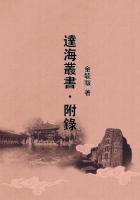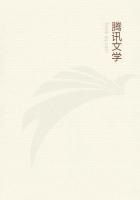It has done so many things. But that very multiplicity of proof which ought to make reply overwhelming makes reply impossible.
There is, therefore, about all complete conviction a kind of huge helplessness. The belief is so big that it takes a long time to get it into action. And this hesitation chiefly arises, oddly enough, from an indifference about where one should begin.
All roads lead to Rome; which is one reason why many people never get there. In the case of this defence of the Christian conviction I confess that I would as soon begin the argument with one thing as another; I would begin it with a turnip or a taximeter cab.
But if I am to be at all careful about ****** my meaning clear, it will, I think, be wiser to continue the current arguments of the last chapter, which was concerned to urge the first of these mystical coincidences, or rather ratifications. All I had hitherto heard of Christian theology had alienated me from it.
I was a pagan at the age of twelve, and a complete agnostic by the age of sixteen; and I cannot understand any one passing the age of seventeen without having asked himself so ****** a question.
I did, indeed, retain a cloudy reverence for a cosmic deity and a great historical interest in the Founder of Christianity.
But I certainly regarded Him as a man; though perhaps I thought that, even in that point, He had an advantage over some of His modern critics.
I read the scientific and sceptical literature of my time--all of it, at least, that I could find written in English and lying about; and I read nothing else; I mean I read nothing else on any other note of philosophy. The penny dreadfuls which I also read were indeed in a healthy and heroic tradition of Christianity; but I did not know this at the time. I never read a line of Christian apologetics. I read as little as I can of them now.
It was Huxley and Herbert Spencer and Bradlaugh who brought me back to orthodox theology. They sowed in my mind my first wild doubts of doubt. Our grandmothers were quite right when they said that Tom Paine and the free-thinkers unsettled the mind. They do.
They unsettled mine horribly. The rationalist made me question whether reason was of any use whatever; and when I had finished Herbert Spencer I had got as far as doubting (for the first time) whether evolution had occurred at all. As I laid down the last of Colonel Ingersoll's atheistic lectures the dreadful thought broke across my mind, "Almost thou persuadest me to be a Christian." I was in a desperate way.
This odd effect of the great agnostics in arousing doubts deeper than their own might be illustrated in many ways.
I take only one. As I read and re-read all the non-Christian or anti-Christian accounts of the faith, from Huxley to Bradlaugh, a slow and awful impression grew gradually but graphically upon my mind--the impression that Christianity must be a most extraordinary thing. For not only (as I understood) had Christianity the most flaming vices, but it had apparently a mystical talent for combining vices which seemed inconsistent with each other.
It was attacked on all sides and for all contradictory reasons.
No sooner had one rationalist demonstrated that it was too far to the east than another demonstrated with equal clearness that it was much too far to the west. No sooner had my indignation died down at its angular and aggressive squareness than I was called up again to notice and condemn its enervating and sensual roundness.
In case any reader has not come across the thing I mean, I will give such instances as I remember at random of this self-contradiction in the sceptical attack. I give four or five of them; there are fifty more.
Thus, for instance, I was much moved by the eloquent attack on Christianity as a thing of inhuman gloom; for I thought (and still think) sincere pessimism the unpardonable sin.
Insincere pessimism is a social accomplishment, rather agreeable than otherwise; and fortunately nearly all pessimism is insincere.
But if Christianity was, as these people said, a thing purely pessimistic and opposed to life, then I was quite prepared to blow up St. Paul's Cathedral. But the extraordinary thing is this.
They did prove to me in Chapter I. (to my complete satisfaction) that Christianity was too pessimistic; and then, in Chapter II., they began to prove to me that it was a great deal too optimistic.
One accusation against Christianity was that it prevented men, by morbid tears and terrors, from seeking joy and liberty in the bosom of Nature. But another accusation was that it comforted men with a fictitious providence, and put them in a pink-and-white nursery.
One great agnostic asked why Nature was not beautiful enough, and why it was hard to be free. Another great agnostic objected that Christian optimism, "the garment of make-believe woven by pious hands," hid from us the fact that Nature was ugly, and that it was impossible to be free. One rationalist had hardly done calling Christianity a nightmare before another began to call it a fool's paradise. This puzzled me; the charges seemed inconsistent.
Christianity could not at once be the black mask on a white world, and also the white mask on a black world. The state of the Christian could not be at once so comfortable that he was a coward to cling to it, and so uncomfortable that he was a fool to stand it.
If it falsified human vision it must falsify it one way or another; it could not wear both green and rose-coloured spectacles.
I rolled on my tongue with a terrible joy, as did all young men of that time, the taunts which Swinburne hurled at the dreariness of the creed--
"Thou hast conquered, O pale Galilaean, the world has grown gray with Thy breath."
But when I read the same poet's accounts of pagani** (as in "Atalanta"), I gathered that the world was, if possible, more gray before the Galilean breathed on it than afterwards.
The poet maintained, indeed, in the abstract, that life itself was pitch dark. And yet, somehow, Christianity had darkened it.

